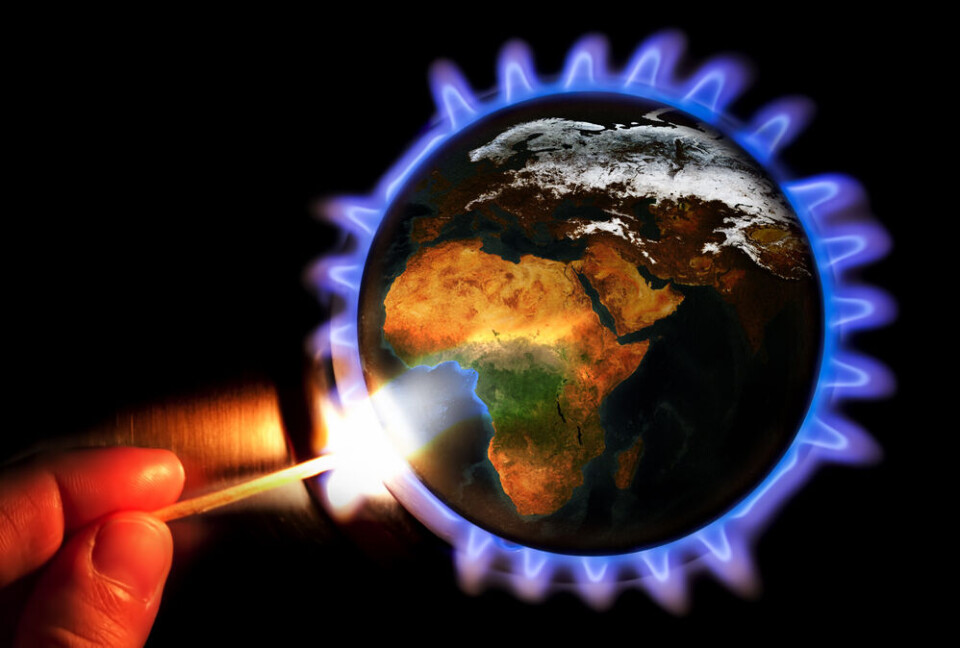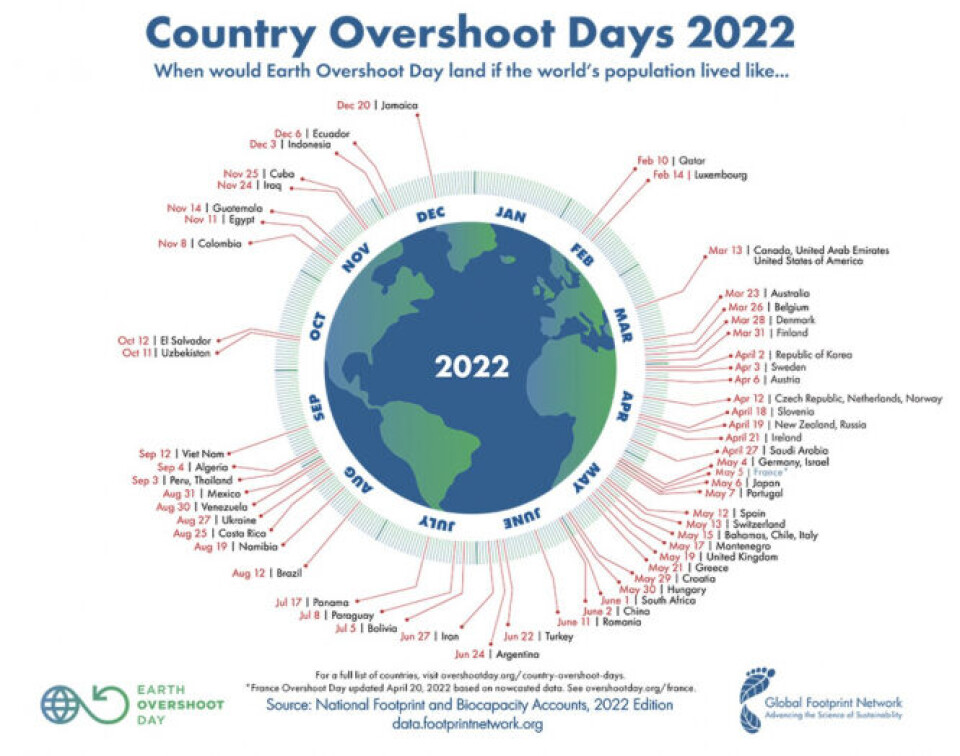-
Is it time to stop changing the clocks in Europe?
Campaigners say it would help improve health and also reduce traffic accidents
-
Gisèle Pelicot memoir hits sales top spot in France
The book, which has been translated into 22 languages, left Queen Camilla ‘speechless’
-
New tax on deliveries from outside EU: How will it affect customers?
The new charge will apply to all deliveries valued under €150
Climate: France hits ‘Overshoot Day’ on natural resources use today
The metric shows when France exceeds naturally renewable resources. If the whole world used resources in the same way, we would need 2.9 Earths

France has today (May 5) reached its “Overshoot Day”, the day on which the country has exceeded the planet’s capacity to renew the natural resources used in a year.
“Overshoot Day” is a concept created by the US sustainabillity NGO, Global Footprint Network (GFN), and refers to what it calls the “Ecological Footprint”.
In describing the idea, it says: “Humans use as many ecological resources as if we lived on 1.75 Earths. The Ecological Footprint is the only metric that compares the resource demand of individuals, governments, and businesses against Earth's capacity for biological regeneration.”
Every year, it calculates the Overshoot Day for the world – which was July 29 in 2021 (2022 has not yet been officially calculated) – and also calculates the figure for individual countries.
The day is calculated by cross-referencing the ecological footprint of human activities (land and sea areas needed to produce the resources consumed, and to absorb the population's waste) and the Earth's "biocapacity" (the capacity of ecosystems to regenerate and absorb the waste produced by humans, including CO2 capture).
The metric also shows that if the entire world used global resources in the same way as France, we would need 2.9 Earths to support everyone’s needs, said GFN and its partner, ecological campaigner WWF

Image: Global Footprint Network / Overshootday.org
This year, France hit its Overshoot Day on May 5. This means that by today, the country has used up the equivalent of all of the planet’s resources that can be renewed in a year.
France has been considered among the worst-performing countries for the metric since 1981, and its score has been worsening for decades (with the exception of 2020, due to the Covid pandemic).
Overshoot Days for European countries include:
- February 14: Luxembourg
- March 26: Belgium
- March 28: Denmark
- April 3: Sweden
- May 4: Germany
- May 7: Portugal
- May 12: Spain
- May 13: Switzerland
- May 19: United Kingdom
In 2022, France’s Overshoot Day has come five months earlier than it would have in 1961.
In a statement, WWF France said: “All the presidents of the Fifth Republic have allowed the country's ecological footprint to deteriorate.
“On average, according to the data used each year by the Global Footprint Network, between 1981 and 2007, Overshoot Day advanced by 10 days at the end of each mandate.”
Trend reversible, but only with ‘more ambitious targets’
However, “we are not condemned”, said GFN honorary president, Isabelle Autissier. WWF estimates that with work over President Emmanuel Macron’s new five-year term, France could push its Overshoot Day back by 25 days, to May 30, by 2027.
This would require planning and funding of all sectors, it said, with targets that are “more ambitious than those currently set”. This would include, the NGO said:
- Halving the use of pesticides
- Bringing 25% of the land into organic farming use
- Carrying out 700,000 eco-friendly home renovations per year
- Supporting transport alternatives to individual cars
- Reducing animal protein consumption by 20%
- Increasing the development of renewable energy
Under existing eco-friendly commitments (laws passed over the past five years on carbon waste, food waste, transport, and climate), France would push its Overshoot Day back by just three days, to May 8, by 2027.
If nothing changes, if France continues “business as usual” along current levels, Overshoot Day would instead move forward by two days, to May 3, by 2027.
Worldwide, Qatar is the country to reach its limit first, on February 10, while Jamaica is the last on the list, on December 20.
Related articles
How climate change will affect major cities in France by 2050
Climate change in France: People 'do not understand what's coming'
Greenpeace France: Tackling climate change is our priority
Floods, heatwaves: New report predicts global warming effect on France
























